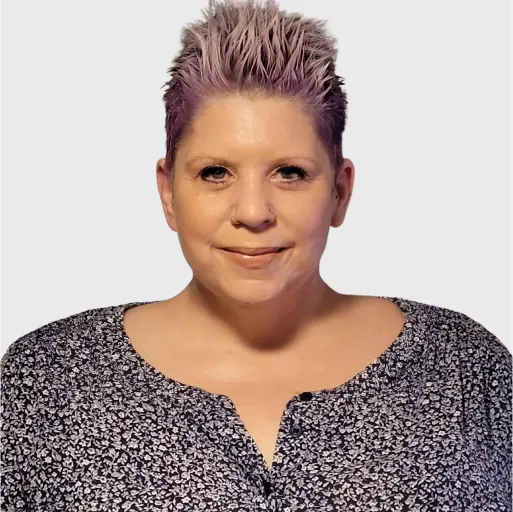
DBT Therapy For OCD: Effective Treatment for Lasting Change
DBT can help individuals regain control and improve their quality of life by addressing the core challenges of OCD. Whether you're exploring therapy options or supporting a loved one, discover how DBT offers hope and healing.
Published on:DBT Therapy for OCD: Understanding the Basics
Dialectical Behavior Therapy (DBT)
Dialectical Behavior Therapy (DBT) is a cognitive-behavioral treatment developed by Dr. Marsha Linehan. Originally designed for individuals with borderline personality disorder, DBT focuses on four key areas: mindfulness, distress tolerance, emotion regulation, and interpersonal effectiveness. These skills aim to help individuals manage intense emotions and improve relationships.
Obsessive-Compulsive Disorder (OCD) is a chronic condition marked by persistent, unwanted thoughts (obsessions) and repetitive behaviors (compulsions). Symptoms include excessive cleaning, checking, and counting, significantly affecting daily life.
The Role of DBT Therapy in Treating OCD
While DBT wasn’t originally designed for OCD, its principles can be adapted to help manage symptoms effectively.
Why is Dialectical Behavior Therapy for OCD Effective?
DBT therapy’s focus on mindfulness and emotion regulation makes it a valuable tool for individuals with OCD. Mindfulness helps individuals become aware of their thoughts and feelings without judgment, reducing the power of obsessions. Emotion regulation skills help manage the intense feelings that often accompany compulsions.
Key Benefits of DBT Therapy for OCD:
- Increased awareness of thought patterns
- Enhanced ability to tolerate distress
- Improved emotional regulation
- Development of effective interpersonal skills
By using DBT, individuals with OCD can overcome symptoms effectively, leading to reduced distress and a better quality of life.
Meet Our DBT Therapy Experts who can help solve your OCD today
Our therapists are ready to help, both online and in person. Contact us today to start improving your OCD symptoms.
Meet Some of Our Expert Therapists

Colleen Barron
I am known for my effective and compassionate approach to therapy. With years of experience and a strong educational background, my practice is dedicated to helping individuals achieve personal growth, healing, and overall well-being.
View Colleen's Profile
Lauren Campbell
Seeking therapy can be intimidating. I pride myself on being warm, relatable, and friendly. I see my role as therapist to listen, teach, and work collaboratively with each client to achieve our formulated shared goals.
View Lauren's Profile
Amy Carbone
I am a Licensed Clinical Social Worker, empathetic, non-judgmental gal who accepts all clients for who they are. I believe in starting where the client is at that moment in their life. I think the most important part of therapy is the therapeutic relationship.
View Amy's Profile
Elisa Frazier
I firmly believe that everyone has the potential to live a satisfying life, regardless of their past actions or current pain. My approach is to let the client set the pace and move towards their goals, while I support them every step of the way.
View Elisa's Profile
Isabelle Ahlborn
I want to work with a diverse population of people, families, and groups, helping them overcome challenges, persevere, and improve their mental health through therapy that addresses their psychological and mental well-being.
View Isabelle's ProfileEffective DBT Therapy Techniques for OCD Management
DBT therapy provides specific techniques that can be adapted to help manage the symptoms of OCD, focusing on mindfulness and distress tolerance.
Mindfulness Practices in DBT Therapy for OCD
Mindfulness is at the heart of DBT therapy and involves being present in the moment without judgment. For individuals with OCD, mindfulness can help decrease the intensity of obsessions by shifting focus away from intrusive thoughts.
Practicing mindfulness can involve simple exercises, such as focusing on your breath, engaging in body scans, or simply observing your surroundings without getting caught up in thoughts or feelings. This practice helps to break the cycle of obsession and compulsion, offering a new way to experience thoughts and emotions.
Distress Tolerance Strategies in DBT Therapy
DBT therapy equips individuals with distress tolerance skills to manage intense emotions without resorting to compulsive behaviors. These skills focus on building resilience and coping mechanisms in the face of challenging situations.
Techniques such as the STOP skill (Stop, Take a step back, Observe, Proceed mindfully) and TIP (Temperature, Intense exercise, Paced breathing) are designed to help individuals handle overwhelming emotions and reduce the urge to engage in compulsions.
By incorporating these techniques into daily routines, individuals with OCD can enhance their ability to tolerate distress and decrease reliance on compulsive behaviors.
Therapist Perspectives on DBT Therapy for OCD
Insights from therapists highlight the effectiveness of DBT therapy in managing OCD symptoms and improving the quality of life for individuals.
Therapists specializing in DBT therapy emphasize the importance of a collaborative approach when treating OCD. By working closely with clients, therapists can tailor DBT therapy strategies to meet individual needs, ensuring that each person receives personalized support.
Key insights from therapists include:
- DBT therapy can complement other therapies, such as ERP, to provide a comprehensive treatment plan.
- The emphasis on mindfulness helps clients gain greater control over their thoughts and reactions.
- Emotion regulation skills are crucial for reducing the emotional impact of obsessive thoughts.
By integrating DBT therapy into the treatment of OCD, therapists can help individuals develop skills that empower them to manage their symptoms effectively and lead fulfilling lives.
Insurance Coverage Made Simple
We accept most major insurance plans and offer low self-pay rates to ensure quality care is accessible to everyone. Your well-being is our priority, and we're here to help regardless of your financial situation.
How to Get Started with DBT Therapy for OCD
Beginning DBT therapy for OCD involves finding the right therapist and understanding what to expect in sessions.
What to Expect in DBT Therapy for OCD
DBT therapy sessions for OCD typically involve a combination of individual therapy, skills training, and homework assignments. During individual therapy, clients work with their therapist to address specific challenges and develop personalized strategies for managing symptoms.
Skills training focuses on teaching mindfulness, distress tolerance, emotion regulation, and interpersonal effectiveness skills. Homework assignments reinforce these skills and encourage clients to apply them in real-life situations.
Starting DBT therapy for OCD can be a transformative step toward managing symptoms and improving quality of life. With the right therapist and commitment to the process, individuals can develop the skills needed to navigate the challenges of OCD and achieve lasting change.
FAQ: Common Questions About DBT Therapy For OCD
Does DBT therapy help with OCD?
What is the best therapy for OCD?
What are the best coping strategies for OCD?
How to stop intrusive thoughts using DBT?
What are the DBT skills?
Can DBT Therapy for OCD Help with Rumination?
What is the stop skill for OCD?
How to break an OCD cycle?
Related Articles

Comprehensive Guide to the Four Modules of DBT
Mindfulness, distress tolerance, emotion regulation, and interpersonal effectiveness. Learn how these skills can improve emotional well-being and relationships

I Can't Find People I Want to Be Friends With: Finding Your Tribe
Struggling to make friends? Integrative Family Counseling in Dupage County, IL can help. Find support and build meaningful connections.

Online Jobs for People with Anxiety: Find Work That Fits Your Needs
Find out which online jobs are best for people with anxiety. Learn about flexible work options that can accommodate your needs and tips for managing anxiety while working from home.

Initiative vs Guilt: Navigating Erikson's Third Stage
Erikson's Initiative vs Guilt stage explained. Learn how to navigate this developmental phase and foster healthy development.


